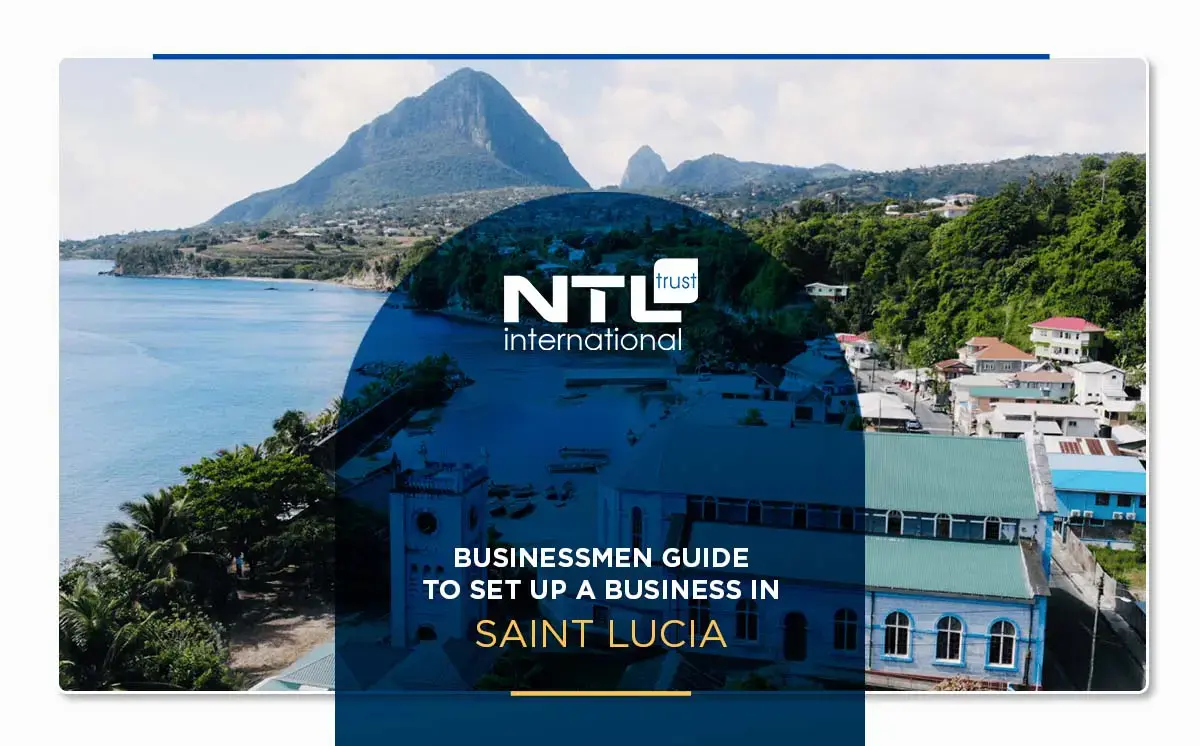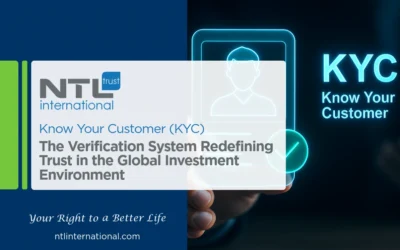
In order to set up a business in Saint Lucia, the Caribbean region in general, and St. Lucia, in particular, provide an ideal environment for businessmen. The wheel of economics revolves around the island of St. Lucia, and the transformation of the region’s economy begins from an agricultural economy to a more developed economy that depends on many factors. The most important are tourism and citizenship programs by investment.
Article index to set up a business in Saint Lucia:
- Obtaining business licenses.
- What is a trade license?
- How do I start registering a foreign company in Saint Lucia?
- Types of companies in terms of investment percentage.
- Requirements to set up a business in Saint Lucia.
- Project validity renewal requirements.
- Obtaining investment citizenship g
- What incentives does the investor get when he wants to set up a business in Saint Lucia?
- What permits are required from investors to set up a business in Saint Lucia?
- What are the incentives that the investor gets when establishing his project in Saint Lucia?
– Financial incentives.
– Tourism incentives.
– Material Incentives Received During Development:
– Incentives obtained when investing in the free zone:
Obtaining business licenses in order to set up a business in Saint Lucia:
Any investor wishing to establish his own project must obtain a commercial license issued by the Ministry of Commerce and Industry for Consumer Affairs. The company is considered foreign if 51% of its shares are owned by foreign investors, and the license application is studied by the Commercial License Advisory Board.
What is a trade license?
It is a license granted to anyone who wishes to set up a business in Saint Lucia. The license expires at the end of the year in which it was granted. It is renewed annually for a nominal fee of 1,000 Eastern Caribbean dollars.
How do I start registering a foreign company in Saint Lucia?
To set up a business in Saint Lucia, the investor must find a distinctive name for the company, after approval, the following documents are required:
- Foreign company registration application.
- A copy of the company papers for legal approval.
- Submission of a power of attorney by the company manager in order to obtain approval to start work.
- EC stamp fee with each permit.
- Submission of documents to the Companies Registry.
- Issuance of company incorporation certificate.
- When the application is submitted and approved, a certificate is issued and fees are paid.
Types of companies in terms of investment percentage:
- Local companies: when citizens of St. Lucia or the Caribbean Community own more than 50% of their shares.
- Offshore companies: when investors in Saint Lucia or the Caribbean Community own more than 50% of the company’s shares.
Requirements to set up a business in Saint Lucia:
The investor needs to submit several requirements to obtain approval to set up a business in Saint Lucia:
1- A reference letter from the applicant’s bank.
2- Personality certificate of the main founder.
3- A memorandum explaining the commercial activities.
4- Passport page for shareholders and directors.
Project Renewal Requirements:
If the investor set up a business in Saint Lucia, there are many requirements:
1- Certificate of good conduct and conduct from the Companies and Intellectual Property Register.
2- Compliance letters from the National Insurance Institute, the Internal Revenue Service, and the Department of Labor.
3- Evidence of compliance with any dealer license or legislation.
Obtaining citizenship by investment in Saint Lucia:
An investor can obtain citizenship by investment in Saint Lucia after several years of setting up a business in Saint Lucia, but he can obtain citizenship faster if he chooses to obtain investment citizenship from one of the following investment methods:
- Donate $100,000, which is non-refundable.
- Real estate investment by purchasing a property with a value of no less than $200,000.
- Investing in government bonds in the amount of $300,000.
What permits are required from investors to set up a business in Saint Lucia?
The investor wishing to develop the land must submit a request to the Planning Department under the administration of the Ministry of Agriculture, Fisheries and Urban Planning. 3 copies of the application must be submitted in addition to the notarized maps and plans. If you do not obtain approval within a maximum period of 90 days, this means that the application is rejected, and the investor has the right to submit an appeal.
What incentives do the investor get when he wants to set up a business in Saint Lucia?
The government in Saint Lucia provided many incentives to encourage investment in the region and attract many investors and businessmen worldwide. It provided various tax and non-tax incentives to facilitate business. The Council of Ministers grants these incentives and vary according to the type and size of the business.
In order to benefit from the incentives, the following conditions must be met:
- The company must be registered in Saint Lucia.
- To contribute to the development of the region’s economy.
- To take advantage of the company’s human and natural resources in the region.
- Training of local staff.
- The company should follow the development of technology and evolve with it.
- The company should contribute to the foreign currency profits of the island.
- The existence of an interdependent relationship with the various economic sectors in the region.
Financial incentives:
The Financial Incentives Law issues grants for various manufacturing, service and processing industries and includes the following exemptions:
- Exemption from corporate income tax for up to 15 years.
- Waiver of import duties on machinery and equipment.
- Exemption on the import of raw materials and packaging materials.
- Repatriation of unrestricted profits and capital.
- Exemption from VAT and imported goods subject to the following conditions:
– A duly registered company and the investor has not carried out any taxable activity.
– The importer has a valid license under the financial incentive laws.
– You send the used goods directly to the approved importer.
Tourist incentives:
- Income tax exemption for up to 15 years.
- Exemption from fees for building materials and furnishings.
- An LLC can distribute profits as a percentage of share capital that are tax-exempt for two years after the tax exemption ends.
Material Incentives Received During Development:
- Exemption from import duties.
- Exemption of new building input payment fees.
- Exemption when building or renovating old buildings.
- There is no tax on land and housing.
- Exemption from foreign currency licensing fees.
- The corporate tax rate upon development is 20%.
- Industrial construction allowance tax of 20% at the start of construction and 5% annual allowance.
Incentives obtained when investing in the free zone:
To set up a business in Saint Lucia. If a company is located inside the free zone there are a set of incentives:
- Exemption from customs duties on all categories of goods.
- No restrictions or taxes on foreign exchange transactions.
- There is no tax on dividends for the first 20 years.
- Exemption from work permit fees for employees of free zone companies.
- There is no import and export license.
- There is no price control.
- There is no income tax during the first 5 years.
- After 5 years, the income tax becomes limited.
The Saint Lucia government sought to create job opportunities and attract foreign investors and provided many facilities, which made it a popular destination for various investors, especially those looking for tax safety or those wishing to obtain a second citizenship. NTL also advises any investor wishing to set up a business in Saint Lucia to contact the specialized team to provide advice and assistance.
Residency in Germany: Complete 2026 Guide to Permanent Settlement and German Citizenship
Residency in Germany landscape for 2026 offers structured routes to temporary residence, permanent settlement, and citizenship, including Section 21 business permits, the EU Blue Card, and the Opportunity Card. This guide explains eligibility logic, key requirements, and practical planning considerations under Germany’s modernized legal framework.
Best Residency by Investment Programs 2026
St. Kitts and Nevis Residency Requirement | CBI Program Update 2026
Greece Inheritance Law 2025: Strategic Guide for Golden Visa Holders and Foreign Investors
Greece enacts Law 5221/2025, the largest inheritance reform in 80 years. Digital will registration via diathikes.gr, heir liability protection, and inheritance contracts effective September 2026. Essential guidance for Golden Visa holders and foreign property investors.
Know Your Customer (KYC): The Verification System Redefining Trust in the Global Investment Environment
Know Your Customer (KYC) has become a central pillar of trust in global investment. This article explains how KYC works, how it is regulated, and why serious investors, especially those seeking citizenship by investment, should treat it as a strategic asset rather than a simple formality.





